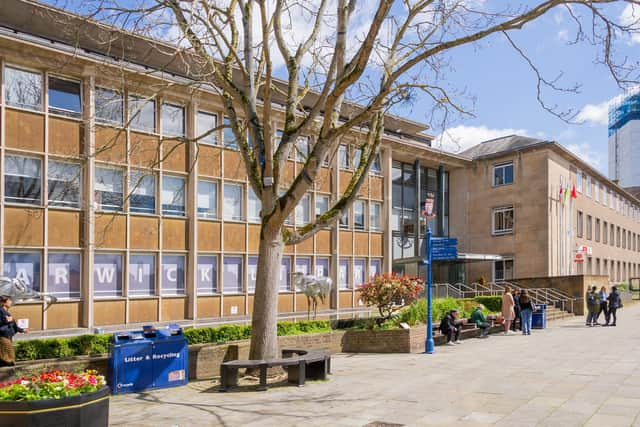Warwickshire County Council: Tough times ahead with council tax rises "essential" and projects "inevitably" paused or stopped
and live on Freeview channel 276
The deputy leader of Warwickshire County Council has warned “pet projects” will be put on ice amid dire warnings over the need to make cuts.
A report to cabinet – the team of Conservative councillors in charge of services – last week laid bare the stark reality of how “highly volatile” financial circumstances will leave councillors with “difficult choices” on how to fund the authority’s services and capital expenditure on one-off items such as equipment or buildings.
Advertisement
Hide AdAdvertisement
Hide AdCouncils set a budget for each financial year that chimes with a rolling five-year plan called a medium-term financial strategy (MTFS).


Budget-setting processes never really stop.
As one gets set, work to develop the next one begins with MTFS adjustments made in line with the latest information on things like government funding, expected council tax revenue, demand for council services and wider things like the impact of inflation.
With inflation rocketing until recently and remaining stubbornly high, plus interest rates rising to try to deal with that, the council’s language around what is to come makes for pretty sobering reading.
It assumes that inflation will continue at around two per cent from April 2024 with the council set to delve into savings to cover higher rates in the meantime.
Advertisement
Hide AdAdvertisement
Hide AdPlanned council tax rises are dubbed “essential” with a “very high bar” to be set for any new ongoing expenditure alongside “a clear expectation that existing planned budget reductions will be delivered”.
It adds that “we will inevitably need to pause, stop or rescope certain” capital projects with fixed funding from government set to “buy much less than originally expected” due to inflation with non-priority projects set to be listed based on the greatest return on investment.
Deputy leader Councillor Peter Butlin (Con, Admirals & Cawston), who oversees the county’s finances and property, last week told the cabinet that he was seeking extra bodies on his budget working group to help steer through “the obvious financial constraints and pressures that are coming our way”.
“I pride myself on the fact we run a tight ship,” he said.
“We have the reserves to deal with things but it does not alter the fact that going forward, we have some tough decisions and that means prioritisation.
Advertisement
Hide AdAdvertisement
Hide Ad“Some of those pet projects in terms of capital expenditure will have to be pushed further away so we can prioritise those things that really matter to the people of Warwickshire and also our statutory duty towards things like school places as one example.
“I don’t want to be full of woe, we have been here before and we have always found a route through it. I am sure we will this time.”
The figures that professionals at the council are working through do not just factor in the rising costs but also the costs of rising demand for services, such as adult social care and children’s services.
Cllr Butlin was asked if he was confident the council could navigate a way through and he reflected on the authority being “pretty resilient” and that the worst-case scenario highlighted in the report – an “alarming” £106 million gap – was much more likely to be a £12 million.
“It does concentrate the mind over what the potential deficits are but be assured, that £106 million really is the worst-case scenario,” he said.
“I am confident I can rise to the challenge, that we all can. I am expanding the budget working group to facilitate that and hopefully, with a bit of co-operation from the opposition parties as well – generally we all want the same things – we can set an MTFS that keeps a healthy financial position for the things we want to deliver.”
Councillors will have a better idea of what they are facing in September when the financial results for the first quarter of this financial year, which started in April, come forward.
